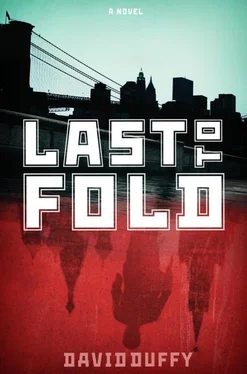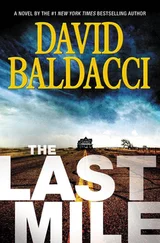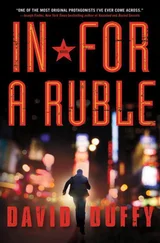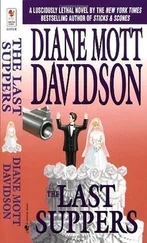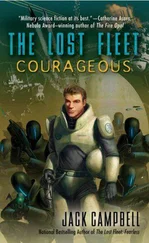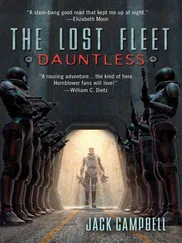Mulholland wore a suit as well, but his was tailored. Double-breasted, dark gray with a heavy white stripe that stated without question Savile Row. His white shirt had a blue RPM monogram on the French cuff. Woven blue and gold silk tie that probably cost more than my car. Tied in a Windsor knot. I’ve never trusted men who use Windsor knots. The entire Brezhnev Politburo wore them, and they were all hard-asses. I shouldn’t talk—I haven’t worn a tie in years.
Mulholland was shorter than I expected—about five foot eight—and rounder, too. He looked younger than his sixty-eight years. His dark curly hair was still full—no gray. His face was without wrinkles, his complexion Irish-pale with round red cheeks—an aging Pillsbury Doughboy, except for one thing. He had hard, dark eyes behind round tortoiseshell glasses that tried to soften them but didn’t stand a chance. A predator’s eyes. I knew them from the Gulag and the Cheka, and I’ve always made a point of keeping my distance.
I turned to Bernie with a look in my eyes that said, I want out, but he either didn’t get the message or ignored me. “Sit down, Turbo. Coffee?”
“No, thanks. Had my fill.”
“Excuse me a moment,” Mulholland said, walking to the desk at the far end. Just after nine thirty, I had a pretty good idea what he was doing. He pushed a couple of keys on his computer. “Market opened down fifty, we’re down two. Not an auspicious start to the day.” “We” would be FirstTrustBankCorp, of which he owned twelve percent.
I took off my jacket, probably a breach of etiquette, and sat next to Bernie. I was wearing the same thing I always wear, gray linen jacket, black T-shirt, beige linen trousers. In winter, I substitute leather and flannel for the linen and a turtleneck for the T-shirt. Saves a lot of time in the morning, not thinking about what to wear.
Mulholland came back down the long room and reclaimed his seat. He straightened his cuffs, then his tie, looked at Bernie, and turned toward me. He was trying to decide between more small talk and getting down to business. Once he started telling his story, he was vulnerable. By the time he finished, I’d own some piece of him. Men like Mulholland didn’t get where they got by exposing themselves. He was instinctively uneasy, trying to delay the inevitable. I waited patiently. Given the mindset I’d brought with me, I was somewhat enjoying the moment.
Bernie, however, was in a hurry, or just uncomfortable with the silence. “Right,” he said, “Rory, perhaps you’d like to tell Turbo—”
Mulholland held up a pudgy finger. It showed his age more accurately than his face. “I have a few questions for Mr. Vlost first.”
He wanted to run the meeting, maintain control for as long as he could. I turned and tried to look attentive—for Bernie’s sake.
“You were in the KGB,” he said. A statement, not a question.
I nodded.
“How did you come to choose that career?”
“Beat being a prisoner.”
That got a reaction. Usually does.
“I don’t understand.”
“Limited career choices. Could’ve been a criminal. Had most of the necessary training, but prison and I didn’t agree. KGB looked pretty good by comparison.”
“I still don’t follow.”
I wondered how much Bernie had told him and, not for the first time, how much he knew.
“Law, crime, and punishment were ill-defined concepts in the Soviet Union. The line moved around. A lot of people started out on one side and ended up on the other. I was lucky, I have some skills that were useful.”
This was the truth, as far as it went, which wasn’t very far. The rest of the story was something I, along with millions of other Russians, don’t discuss. Shame is the most insidious of human emotions—worse than death, as another of our proverbs puts it.
“It didn’t bother you to enforce the same law that victimized you?”
“Who said I was victimized?”
Bernie said, “Rory, I—”
Mulholland said, “You were a member of the Party.” Another statement.
“Had to be.”
“You believe all that Marxist-Leninist claptrap?”
“Marx was a pretty good historian but a poor student of human nature. Even in its pure form, before the Bolsheviks got hold of it, Communism is a flawed ideology. People don’t want to share. They want to keep everything they can get.”
I looked around the paneled room. Mulholland frowned, and Bernie winced.
“Why did the KGB want you?”
“Languages. I speak seven.”
“You were well trained. I don’t hear any accent.”
“ Mes amis français me disent la même chose . I don’t hear any Boston brogue either.”
“That would be the nuns. Another kind of police.” He smiled at his joke. “What did you do in the KGB?”
“Started out in the Second Chief Directorate, counterintelligence. Spent most of my career in the First Department of the First Chief Directorate. That’s the part that spies on you.” I gave him a friendly grin to let him know it was nothing personal, which he did not return. “Retired with the rank of colonel. That’s about all I can say.”
“Can or want to?”
I shook my head. The look on his face said people didn’t do that to him very often. The look went away.
“How long have you been here?”
“Since ’93.”
“Why’d you leave?”
“Everything about Russia was changing. Except the KGB. When Primakov took over, he offered an early retirement program. I took him up on it.”
He looked as if I’d finally said something sensible.
“Married?”
“Used to be.”
“Divorced?”
I nodded.
“That’s unfortunate.”
“Not according to my ex-wife.”
“That’s not what I mean. Marriage is a sacrament. Divorce is something that shouldn’t… Children?”
“One son. Grown now.”
“No thoughts of marrying again?”
“I don’t see—”
“Not queer, are you?”
I considered whether that was any of his damned business, which was a waste of time because of course it wasn’t. Bernie stopped me before I could say so.
“Rory—”
Mulholland held up the fleshy hand again. “These questions may seem impertinent, Mr. Vlost, but I need to assure myself that I can trust you. The matter that brings you here involves my family, which is the most important thing in my life, after God. Bernie tells me you are smart, honest, and competent. That’s all to the good. But you are not an American. In fact, you were a sworn enemy of our country for your entire career. Your divorce indicates a certain lack of faith in one of the institutions that holds our society together. I’m wondering if there are other moral lapses.”
Moral lapses. From a guy who practiced legal loan-sharking. I turned to Bernie again, but he’d acquired a powerful interest in the carpet. I swung back to Mulholland, who was watching me intently. Might as well put an end to this now.
“I drink vodka. Beer, too. I play cards, for money. Tried dope, did inhale, didn’t like it, went back to vodka. My childhood friends were all what you’d call juvenile delinquents. Some went on to become full-fledged criminals. I chase tail from time to time, female, if that makes a difference to you. I’ve covered most of the seven deadly sins at one point or another—except maybe greed, but only because guys like you cornered the market. I don’t expect to change my ways. Perhaps I’m not your man, Mr. Mulholland. I’d certainly understand if you felt that way.” I stood and picked up my jacket.
“Sit down,” he barked. The hard, dark eyes got darker. “We’re not finished yet.”
That surprised me—I would have bet the dacha on being thrown out. I did as he asked, perhaps because my curiosity—an eighth mortal sin, if there ever was one—was kicking in. We sat silently for a good several minutes, which didn’t seem to bother Mulholland or me. Bernie bent forward and rubbed his hands between his knees. Eventually Mulholland got up, walked to the desk, announced the market was now down ninety and FTB two and a half, returned to his chair, and said, “Tell me about your company.”
Читать дальше
